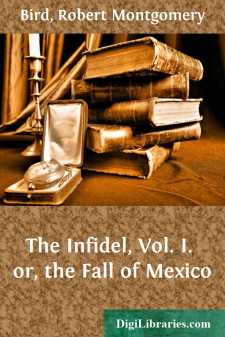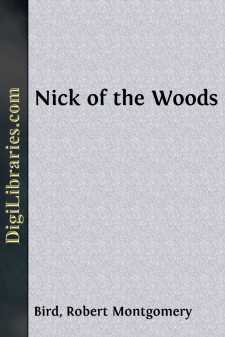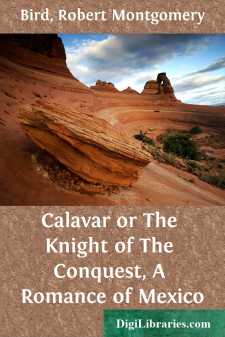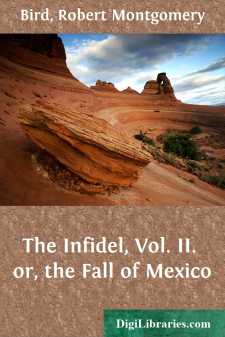Categories
- Antiques & Collectibles 13
- Architecture 36
- Art 48
- Bibles 22
- Biography & Autobiography 813
- Body, Mind & Spirit 142
- Business & Economics 28
- Children's Books 17
- Children's Fiction 14
- Computers 4
- Cooking 94
- Crafts & Hobbies 4
- Drama 346
- Education 46
- Family & Relationships 57
- Fiction 11829
- Games 19
- Gardening 17
- Health & Fitness 34
- History 1377
- House & Home 1
- Humor 147
- Juvenile Fiction 1873
- Juvenile Nonfiction 202
- Language Arts & Disciplines 88
- Law 16
- Literary Collections 686
- Literary Criticism 179
- Mathematics 13
- Medical 41
- Music 40
- Nature 179
- Non-Classifiable 1768
- Performing Arts 7
- Periodicals 1453
- Philosophy 64
- Photography 2
- Poetry 896
- Political Science 203
- Psychology 42
- Reference 154
- Religion 513
- Science 126
- Self-Help 84
- Social Science 81
- Sports & Recreation 34
- Study Aids 3
- Technology & Engineering 59
- Transportation 23
- Travel 463
- True Crime 29
The Infidel, Vol. I. or, the Fall of Mexico
Description:
Excerpt
CHAPTER I.
The traveller, who wanders at the present day along the northern and eastern borders of the Lake of Tezcuco, searches in vain for those monuments of aboriginal grandeur, which surrounded it in the age of Montezuma. The lake itself, which not so much from the saltness of its flood as from the vastness of its expanse, was called by Cortes the Sea of Anahuac, is no longer worthy of the name. The labours of that unhappy race of men, whose bondage the famous Conquistador cemented in the blood of their forefathers, have conducted, through the bowels of a mountain, the waters of its great tributaries, the pools of San Cristobal and Zumpango; and these, rushing down the channel of the Tula, or river of Montezuma, and mingled with the surges of the great Gulf, support fleets of modern argosies, instead of piraguas and chinampas, and expend upon foundering ships-of-war the wrath, which, in their ancient beds, was wasted upon reeds and bulrushes. With the waters, which rippled through their streets, have vanished the numberless towns and cities, that once beautified the margin of the Alpine sea; the towers have fallen, the lofty pyramids melted into earth or air, and the palaces and tombs of kings will be looked for in vain, under tangled copses of thistle and prickly-pear.
The royal city of Tezcuco is now, though the capital of a republican state, a mean and insignificant village. It was originally the metropolis of a kingdom once more ancient and powerful than that of Mexico; and which, when it had shared the fate of all others within the bounds of Anahuac, and acknowledged the sway of the Island Kings, still preserved the reputed, and perhaps the real possession of superior civilization. Its princes, in becoming the feudatories, became also the electors, of Mexico; and thus added dignity to an independence which was only nominal. The polished character of these barbarous chieftains, as the world has been taught to esteem them, may be better understood, when we know, that they sowed the roadside with corn for the sustenance of travellers, and the protection of husbandmen, built hospitals and observatories, endowed colleges and formed associations of literature and science, in which, to compare small things with great, as in the learned societies of modern Europe and America, encouragement was given to the study of history, poetry, music, painting, astronomy, and natural magic. The various mechanical trades were divided into corporate bodies, and assigned, each, to some particular quarter of the city; courts and councils were regularly established, and the laws which they dispensed, digested into uniform and written codes, some of which are still preserved. The kings of Tezcuco themselves mingled in the generous rivalries which they fomented: there are still in existence,âat least, in the form of translation,âseveral of the odes of Nezahualcojotl, a royal Tezcucan poet; and his hymns to the Creator, composed half a century before the advent of the Spaniards, were admired and chanted by the Conquerors, until devoted by misjudging and fanatical missionaries to the flames which consumed the written histories and laws of the kingdom, as well as the idolatrous rituals of the priests, with which last the others were unfortunately confounded.
A few ruinsâa cluster of dilapidated housesâa galloping Creole on his high Spanish saddle, with glittering manga and rattling anquera,âand, now and then, an Indian skulking moodily along, in his squalid serape,âare all that remain of Tezcuco.
In the spring of 1521, the year that followed the flight of the Spaniards from Mexico, the city of the Acolhuacanese presented all its grandeur of aspect, and, to the eye, looked full as royal and imperishable as in the best days of its freedom. But the molewarp was digging at its foundations; and the cloud which had ravaged the Mexican valley, and then passed away into the east, where it lay for a time still and small, 'like to a man's hand,' had again crept over the mountain barriers to its gates, and was now brooding among its sanctuaries. A group of Christian men sat under a cypress-tree, without the walls, regarding the great pyramid, on whose lofty terrace, overshadowing the surrounding edifices, floated a crimson banner of velvet and gold, on which, besides the royal arms of Spain, was emblazoned, as on the Labarum of the Constantines, a white cross, with the legend, imitated from that famous standard of fanaticism, In hoc signo vincemus. If other proof had been wanting of the return of the Spaniards to the scene of their discomfiture, their presence in Tezcuco, and their unchangeable resolution to complete the work of conquest so disastrously begun, it might have been traced abundantly in the strange spectacle, which, equally with the desecrated temple, divided the attention of the group of Castilians at the cypress-tree. They sat on a little swell of earth,âa natural mound which jutted into the lake, whose waters, agitated by a western breeze, dashed in musical breakers at its base; while the rustling of the leaves above, mingled with these sounds of waves, a tone that was both melancholy and harmonious. The beautiful prospect of Tezcuco, rising beyond fertile meadows in the livery of spring, flanked, on the right hand, by a sheet of dark and glossy water,âwith white towers, turrets, and temple-tops, painted, as it seemed, on a background of mountains of the purest azure, was enough of itself to engross the admiration of a looker-on, had there not been presented, hard by, a scene still more singular and romantic.
A train of warriors, artificers and labourers, the latter bending under such burthens as had never before descended to the verge of Tezcuco, was seen passing, at a little distance, towards the city, into which, as was denoted by a sudden explosion of artillery and the blast of trumpets on the top of the pyramid, the leaders were just entering, while the rear of the procession, extending for miles, and winding like some mighty snake, over hill and meadow, was lost among distant forests.
The martial salutation from the town was answered by the whole train with a yell, filling the air, and causing the distant hills and lakes to tremble with the reverberation. In this, the ear might detect, besides the war-cry of Indians, "Tlascala, Tlascala!" the not less piercing shouts of Spaniards, "In the name of God and Santiago!" as well as the flourish of bugles, scattered at intervals among the train....





